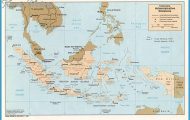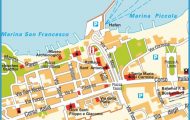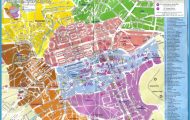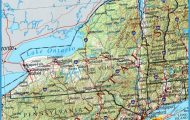Paraguayan Health
Private clinics and hospitals in urban areas offer the highest level of care. The country’s top medical facilities are located in Asuncion. Lab tests, consultations, and even hospital stays are affordable (though you may be expected to pay in cash at smaller facilities). Though travelers should always bring their prescription drugs, it is often possible to obtain an equivalent medication over the counter (under a different brand name). There are pharmacies throughout the country, though in remote areas pharmacies may only stock the basics. Public facilities in small towns tend to be underfunded and lack adequate medical supplies. As such, you are likely to be required to purchase or provide your own medical supplies such as gauze and syringes when seeking treatment in small town facilities.
Should you be involved in a serious accident, ask to be taken to the nearest private clinic (clinica privada) – depending on your location and the severity of the situation, you may be triaged and then transferred to Asuncion for further treatment. Outside of major cities, emergency response units are almost non-existent and should not be counted on exclusively in case of an emergency. In certain areas, it will be faster to pay someone to drive you to the nearest medical facility.
Medical Emergencies in Remote Areas
If you suffer a medical emergency in a remote location such as the Chaco or Pantanal, hiring a private plane from a nearby estancia may be the fastest (and sometimes your only) option. You will be expected to pay in cash, so always keep emergency money on you at all times just in case. Even moving quickly, help may be hours away, so it is best to be prepared for any emergency by bringing a well-stocked first aid kit. A medical emergency handbook may add some weight to you pack but will be extremely valuable should you have to wait for help to arrive. Helitactica (Tel: 021 661 921, 0971 911 000, www.helitactica.com.py) performs helicopter evacuations as well as search and rescue missions. However, these services can cost you thousands of dollars.
Private Health Insurance
If you are staying in Paraguay for an extended period of time and are not covered under traveler’s health insurance, acquiring private health insurance can be useful depending on your medical needs. Standard plans cover day to day medical expenses including doctor’s visits, lab work, and discounts on medications. They do not, however, cover larger expenses for more complex procedures such as cardiovascular operations or dialysis treatments. If you wish to be covered in the eventuality of larger expenses, you must purchase a separate alta complejidad (high complexity) plan. When discussing details with sales representatives, be sure to ask whether medical care is restricted to a particular hospital or clinic and find out how extensive coverage is outside of Asuncion. The two most widely used private health insurance companies based in Asuncion are OAMI (www.oami.com.py) and Asismed (www.asismed.com.py).
Health Concerns
The Center for Disease Control recommends the following vaccines for people traveling to Paraguay: hepatitis A, hepatitis B, yellow fever, typhoid, and rabies, as well as any needed updates of routine vaccinations. Anti-malarials are also recommended for those traveling to the departments of Alto Parana, Canindeyu, and Amambay. Dengue fever, however, is an issue throughout the country. As of yet, there are no immunizations available against dengue fever. The best prevention is to use repellant and netting to protect yourself from mosquito bites. Those who have previously had dengue fever should be extra cautious as they are at higher risk for developing hemorrhagic dengue, which can be fatal. Symptoms of dengue include fever, joint and muscle pain, severe headache, and pain behind the eyes. If you think you may have contracted dengue fever, seek medical attention immediately.
Travelers known to have allergic reactions to insect bites should take proper precautions and bring along any necessary medication. Aside from mosquitoes, wasps and sand flies (known as mbarigui”) are common, as are ticks in the Chaco. Another common insect is pique, a small flea that burrows into the skin and lays eggs. Keep your shoes on and you should be fine. A small black itchy dot, usually on the underside of your foot, is a tell-tale sign. Use a sterilized needle to pick out the flea being sure to get the egg sac as well. If you doubt your pique removing abilities, seek out a local most rural Paraguayans will be able to assist you.
Tap water is generally safe to drink throughout Paraguay. Travelers headed to rural communities should note that while well water is safe in most areas, there is always a risk of parasites such as giardia and roundworm. To be on the safe side, avoid drinking water from a well that is close to and downhill from a latrine.
While prostitution is largely ignored by the authorities, syphilis is a significant problem and HIV/AIDS cases are on the rise. Unfortunately, there are few services and protection for this marginalized community. Though not 100% effective, it is advised that all sexual activity be protected (using condoms).
Hygiene
Toilets in all but the fanciest hotels are unable to flush toilet paper (this can sometimes lead to overflowing trashcans). Some bathrooms charge a nominal fee for which you will receive toilet paper. It is best to go to the bathroom prepared with your own toilet paper and soap or hand sanitizer. Facilities become more basic further from urban centers. Most campgrounds have latrine-style bathrooms.












